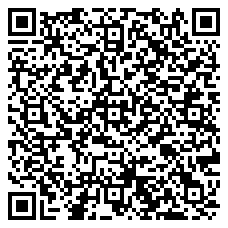Introduction
In industries such as refineries, petrochemical plants, and other processing facilities, the efficient functioning of equipment and piping systems is essential for plant safety and reliability. These systems handle hazardous fluids and operate under extreme conditions of temperature and pressure. To ensure safe operations and minimal downtime, proper design, inspection, and regular maintenance are required to assess the equipment’s integrity and fitness for continued service.
This process plant maintenance course provides a thorough overview of inspection strategies, focusing on equipment evaluation, piping repair, and process plant safety. Emphasizing industrial equipment inspection and non-destructive testing (NDT), the course highlights essential inspection techniques to prevent costly equipment failures and enhance plant performance. Understanding fitness-for-service (FFS) assessment methodologies and major industry codes is crucial to improving asset management and reducing maintenance costs.
Course Objectives
- Understand damage and degradation mechanisms that impact process equipment and piping, and how these mechanisms progressively affect their condition and reliability.
- Recognize the importance of effective inspection for plant safety and its significant impact on Environmental Health and Safety (EHS) and financial performance.
- Increase awareness of industry codes and best practices for inspection, repair, and alteration of process equipment and piping, including ASME BPVC, API codes, and recommended practices.
- Learn fitness-for-service (FFS) assessment methodologies to make informed decisions on run, repair, or replace for damaged equipment and piping.
- Master the most common maintenance and repair techniques to lower maintenance costs while optimizing performance.
Course Outlines
Day 1: Inspection Fundamentals for Plant Safety
- Importance of inspection in the lifecycle of equipment and piping.
- Basics of industrial equipment inspection: locations, methods, and timing.
- Regulatory requirements and their direct impact on process plant safety.
- Understanding degradation mechanisms and their impact on pressure vessels and pipelines.
- ASME BPVC vs. ultrasonic testing for pressure vessel inspections.
- Inspection of refineries and identification of vulnerabilities (API 571).
Day 2: Inspection Strategies and Techniques
- Developing inspection strategies and systems tailored to plant needs.
- External vs. internal inspections: constraints, costs, and benefits.
- Overview of Risk-Based Inspection (RBI), including API RP 580 and API RP 581.
- Advanced inspection techniques: long-range ultrasonic testing (LRUT) and advanced phased array for weld inspection.
- Integration of online monitoring systems and their use in real-time assessments.
Day 3: Inspection Codes and Best Practices
- Pressure vessel inspection practices (API 572, API 510) and pressure relief devices (API RP 576).
- Best practices for inspecting fired boilers, furnace tubes, and storage tanks (API 573, ABSA AB 507, STI SP001).
- Pipeline inspections and component inspection standards (API 574, API 570).
- Pressure testing codes and best practices for ensuring equipment safety and reliability.
Day 4: Data Evaluation and Analysis
- Verifying and assessing inspection data.
- Managing and analyzing inspection data using Inspection Data Management Systems (IDMS).
- Reliable damage assessment and corrosion rate calculations.
- Using fitness-for-service (FFS) assessments to calculate remaining life and make informed maintenance decisions.
- Overview of API Std 579-1 / ASME FFS-1 and its application in evaluating equipment condition.
Day 5: Repair and Modification of Equipment
- Repair codes and standards: API 510, 570, 653.
- Methods for Positive Material Identification (PMI) and distinguishing between temporary vs. permanent repairs.
- Welding repairs and mechanical repairs as per ASME BPVC IX.
- Specialized repair methods: hot tapping and line stopping (API 2201 for safe practices).
- Determining minimum thickness and maximum allowable working pressure (MAWP).
- Authorization and documentation of repairs.
Why Attend this Course: Wins & Losses!
This course provides a comprehensive understanding of industrial maintenance training and equips participants with the knowledge to assess and manage the integrity of plant assets effectively. By attending this course, you will:
- Gain expertise in equipment evaluation and the best practices for inspecting and maintaining critical process equipment.
- Learn how to use non-destructive testing (NDT) to detect potential failures, preventing unplanned downtimes and reducing repair costs.
- Master piping repair techniques and strategies, enhancing your ability to keep gas piping repair and pressure vessel inspection under control.
- Understand how to manage and optimize the asset lifecycle to improve plant safety, reliability, and financial performance.
Conclusion
The process plant course offers industry professionals in-depth knowledge of the inspection, maintenance, and repair processes essential to ensuring equipment integrity in complex processing environments. Armed with this knowledge, you will be able to perform crucial assessments and repairs, leading to more effective asset management, optimized facilities maintenance, and safer, more reliable plant operations.
By mastering the principles of fitness-for-service assessments and learning from industry-specific standards and practices, you will be well-positioned to reduce operational risks and improve plant performance.


